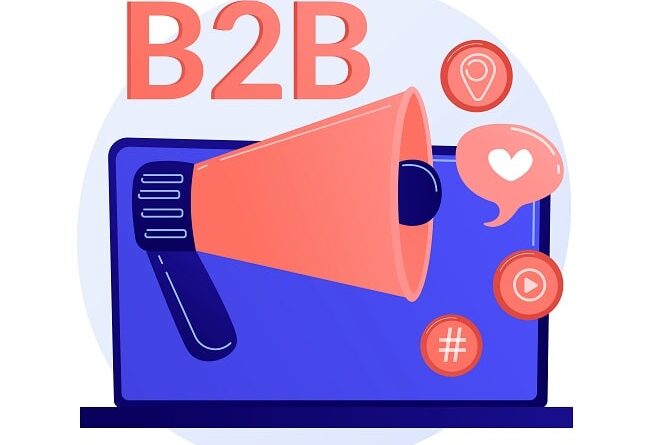B2B Marketing Focal Points: Your Guide to Inter-Business Success
Hey fellow adventurer, prepare to dive into the intricate labyrinth that is B2B (Business-to-Business) marketing. I know, it can seem like a winding, treacherous path, but fear not! I’m here to be your trusty guide, leading you through the swirling mists and igneous obstacles of this complicated terrain.
Let’s strap on our adventure gear, fasten our safety harnesses, and embark on this thrilling journey. With the right focus, each twist and turn can help us discover innovative methods to climb the towering peak of success in the inter-business realm. Are you ready for the climb? Let’s get started.
Understanding the B2B Marketing Landscape
In this part of our discussion, we plunge headfirst into the intricate world of B2B marketing. It’s a world that’s as multifarious as it’s impactful in today’s business landscape. To break it down into chewable bits, we could look at B2B marketing as a puzzle with several interconnected pieces. So, just like you wouldn’t rush to fit a 1000 piece puzzle together, we take our time to understand each of these elements and how they connect to form the grand picture.
It all starts with an overview – a wide-angle view, if you will – of the B2B marketing landscape. By understanding what’s out there, we get to plot our path more effectively. The shifting landscapes of digital, hybrid, and traditional marketing are busy, chaotic, and, at times, intimidating. But with a good map like the one we are charting, the journey to proficient B2B marketing becomes less daunting.
Then we move onto the all-important discussion on strategic targets. This is akin to setting our compass heading. It’s where we define our destination. Knowing who our target audience is, what their needs are, and how we could serve them – all of these become significant chunks in our grand puzzle. But remember, strategy is more than just identifying your audience. It’s also about devising ways to connect, serve, and retain them.
Finally, it’s the feedback loop – our satnav of sorts. These are the mechanisms we put in place to listen, learn, and improve continually. It’s how we stay on path, make amendments, and strive for success in the variable terrains of B2B marketing. The feedback loop is not only for course correction but also a tool for innovation and improvement. Precisely why Forbes considers feedback as foundational in the modern customer journey.
Success Strategies: From Planning to Execution
In the realm of B2B marketing, strategic planning is the backbone that ensures successful campaigns. It involves defining attainable goals, understanding the target audience, and mapping out a precise path to reach them. The importance of a well-thought-out plan cannot be overstated as it defines the course of your marketing strategies and provides the framework for tracking progress and measuring success.
Execution is the next stepping stone where the planned strategies are brought to life. This involves integrating various tactics across multiple channels, ensuring the right message reaches the right audience at the right time. Practicing consistency, aligning marketing activities with the sales teams, and optimizing different tactics for maximum impact are key to successful execution.
Understanding that marketing is a dynamic process, it’s here that measurement and analysis enter the picture. With the aid of tools and technology, marketers have the potential to track various metrics, whether it’s web traffic, lead generation, conversion rates or customer engagement. Measuring the effectiveness of your marketing strategies through these metrics will help determine what’s working and what’s not, thereby providing valuable insights.
The final stage, which is often neglected yet crucial, is refining the strategies. This involves revisiting the plan and strategies, making use of the analytical insights, and tweaking them for better performance. Continuous refinement based on changing market dynamics and customer behavior is the secret ingredient to staying relevant and competitive in the B2B marketing landscape.
Case Studies: Benchmarking Success in B2B Marketing
Our piece delves into fascinating real-life case studies that serve as shining examples of triumph in the world of B2B marketing. These stories provide a rare and in-depth look into how each business uniquely approached their marketing challenges and systematically turned them into opportunities.
Your curiosity will be satisfied as we painstakingly dissect how these businesses employed their tactics. They rerouted their approach where necessary and never lost sight of their goals. You’ll find that these aren’t just generic tales but well-analyzed breakdowns of practical solutions in the B2B marketing space.
One of the most compelling aspects we cover is their journey towards achieving their objectives. The road to success is often riddled with trials, but their unwavering perseverance in the face of adversity is what makes these case studies truly remarkable. These companies were able to sail through choppy waters and emerge victorious, offering invaluable lessons for any aspiring B2B company.
Regardless of where you are in your journey, there are always lessons to be learned from those who have walked the path before us. Whether you’re a start-up or a well-established business, these success stories in B2B marketing will undoubtedly inspire and equip you with practical strategies you can apply to your own journey.
Conclusion: The Path to Inter-Business Success
In wrapping up, this section captures the essence of the entire piece, emphasizing the key takeaways central to efficient B2B marketing strategies. It begins with an assertion of the significant role that customer-oriented processes play in cultivating fruitful business-to-business relationships. The discourse then proceeds to underline the vitality of data analytics in fueling business growth and marketing efficacy, regardless of the industry sector.
The main theme within the text is the necessity of future-forward strategies, digitization, and innovations to thrive within the competitive B2B landscape. The role of advanced technologies, such as AI and machine learning, were also spotlighted as integral elements within modern business dealings, focusing on their influence in predicting customer behavior and personalizing the customer journey.
Furthermore, we delve into the impact of effectively utilizing feedback mechanisms to boost customer satisfaction and establish loyalty. There’s also a brief peek at the concept of creating measurable goals and the importance they hold in driving sales performance.
In conclusion, the piece encapsulates several strategic components, each potentially influential in shaping successful B2B marketing. It highlights that a combination of consumer understanding, technological adoption, implementing feedback, and defined goals are not only beneficial but essential in the contemporary B2B environment. To find more about this topic, you may want to refer to McKinsey’s insights on Marketing and Sales.
More about Marketing :
Influencer Marketing Impact: Analyzing Fashion Nova’s Strategy, click here
Nike Branding Tactics: A Marketing Case Analysis, click here
Airbnb’s Digital Marketing: Disruptive Advertising Case Study, click here


